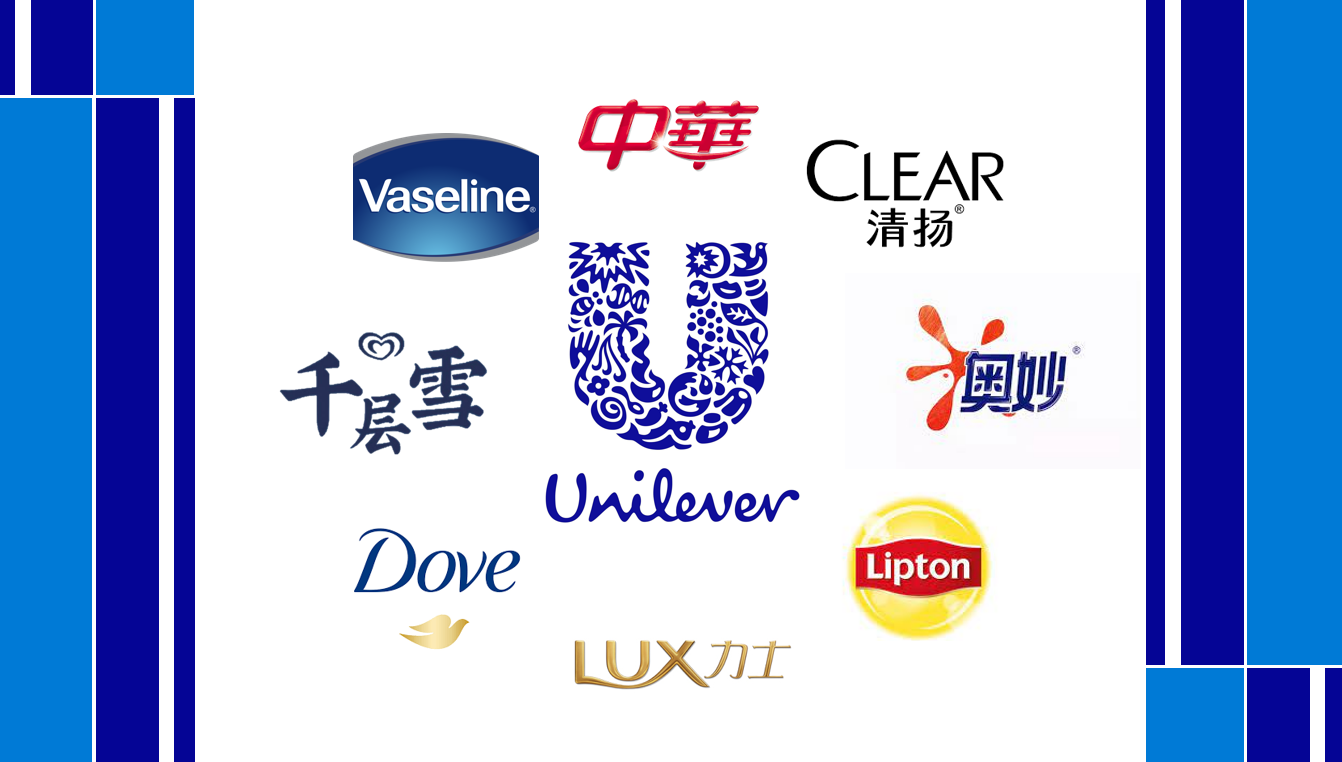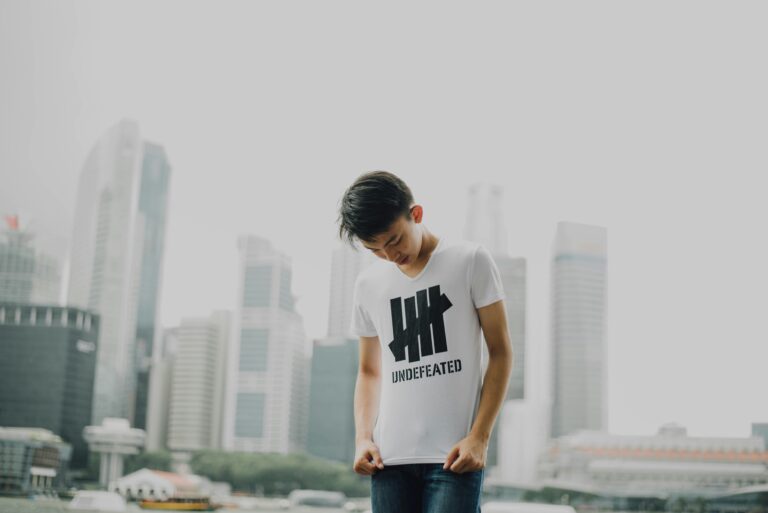During 2021’s investor presentation about Unilever’s business in China, the Executive Vice President, Rohit Jawa, and the Head of Investor Relations, Richard Williams, depicted winning China as a priority for the British-Dutch Group. Despite the frequent ups and downs, Unilever’s marketing strategy in China proves the company’s long-term commitment to engage with local consumers.
In 2019, Unilever was the fourth largest consumer goods company worldwide in terms of net sales, generating about 58,208 USD in that year. Specialized in Fast Moving Consumer Goods (FMCG), the British-Dutch multinational corporation is one of the leading brands in the Foods & Refreshments, Home Care and Beauty & Personal Care market.
The Unilever Group was the result of the merger between Margarine Union, based in the Netherlands, and Lever Brothers, from the UK, in 1929. Until 2020, Unilever consisted of two legal entities: Unilever N.V. in Rotterdam and Unilever PLC in London, operating as a single business, but last year Unilever completed the unification of its legal structure into a single parent company, Unilever PLC.
The Group vaunts over 400 brands, such as Wall’s, Knorr, Lipton, Dove, OMO and Cif. In 2021 Q1, Vitamins, Minerals & Supplements (+54%), Beauty Prestige (+21%) and Skincare (+5%) were Unilever’s fast-growing businesses. Moreover, the reopening of restaurants and cafes led to a 9.8% rise in the food and refreshments sector.
Unilever’s adventure on the Chinese market
Unilever set up its first factory in China in 1923, before being expelled with the establishment of the People’s Republic in 1949. After Deng Xiaoping’s reforms and opening-up policies in 1978, the British-Dutch Group returned to China and set up a joint venture in Shanghai producing Lux soap. Currently, Unilever has 8 production sites as well as 26 logistic centers in China, and recruits 90% of its staff locally.
Unilever did not have an easy life in China but starting from 2017 the Group have been boasting a compound annual growth rate of around 10%. However, in laundry detergents, a category where Unilever and P&G dominate across the globe, local companies like Blue Moon, Liby and Supra hold the lion share.
The key features of Unilever’s marketing strategy in China
As Chinese household disposable income grows, the demand for daily hygiene products is becoming more diversified and consumers care more and more about quality. At the same time, the Covid-19 pandemic raised health awareness among Chinese consumers, boosting the demand for safe, healthy, and high-quality food. In addition, Unilever operates in a highly competitive market where strategies aimed at capturing new customers can easily trigger a price war. This is the reason why Unilever’s marketing strategy in China relies heavily on branding. Indeed, the British-Dutch multinational corporation adopted a multi-brand approach, enabling the company to meet Chinese consumers’ needs in different market segments.
Localization is the key
On the one hand, the Group utilized the most promising and localized among its over 400 brands as a Trojan horse for attracting new consumers, while on the other hand, leveraged the reputation of its best-selling products, launching a wide array of spin-offs. For what regards Unilever’s localization strategy in China, the company made full use of mergers and acquisitions to promote its own image through absorbing influential brands on the local market, such as Zhonghua toothpaste.
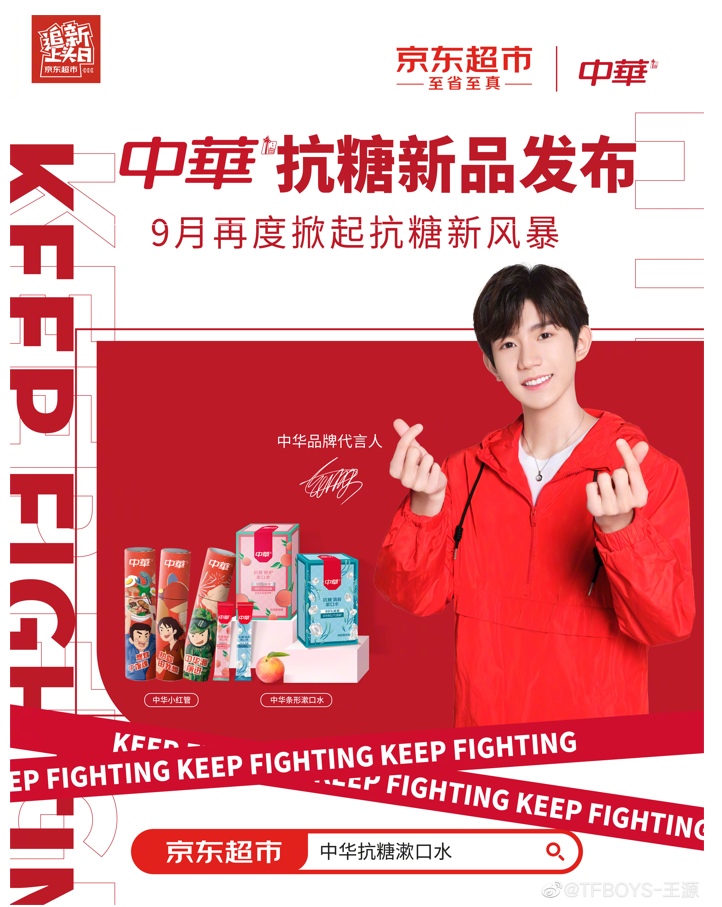
With the rise of internet and the consequent transformation in Chinese consumers’ purchasing habits, e-commerce and social media turned into core elements of Unilever’s marketing strategy in China. E-commerce sales were worth 1.3 billion euros in 2021 H1, accounting for 40% of Unilever’s business. At the occasion of 2020’s 618 shopping event, Unilever partnered with several top high-tier KOLs achieving impressive results. For instance, on May 25, the lip-stick king Li Jiaqi sold around 80,000 bags of OMO laundry gel balls during just the first 3 minutes of his live streaming. Like other brands, most of Unilever’s subsidiaries opted for embracing a direct-to-consumers (DTC) approach and opening flagship stores on WeChat, Weibo, Douyin and Pinduoduo, in an attempt to get closer to Chinese consumers and improve efficiency.
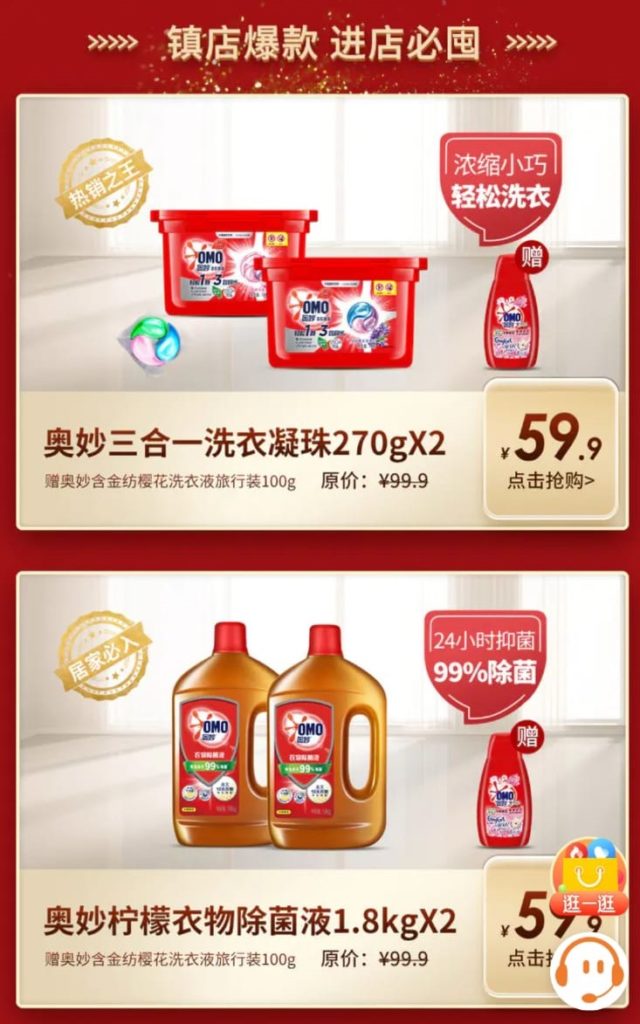
Enhancing corporate reputation
Both at a global and local level, Unilever adopts a Corporate Social Responsibility approach consisting of three pillars: health and well-being, environmental protection, and inclusiveness.
As part of its commitment to sustainable growth and waste-reduction, in 2020 the British-Dutch multinational corporation joined forces with Alibaba to enhance the quality of recycled plastic. The joint initiative was a response to Shanghai government’s plan to reduce plastic waste through installing recycling machines able to identify different kinds of plastics in office buildings and communities across the city. By throwing plastic bottles into such facilities, people will earn “Ant Forest” points on Alipay.
OMO’s awareness campaign taking place earlier this month in Shanghai was related to waste-reduction as well. The laundry detergent brand owned by Unilever built a mountain made of plastic bottles collected by volunteers along the Qinghai-Tibet highway in order to thrust into the spotlight the effects of mass tourism and irresponsible behaviors on the natural ecosystem. On Weibo, over 210 million people joined the conversation about OMO’s snow mountain and the hashtag #don’tbeafraidofgettingdirty was used in about 124,000 discussions.
Other initiatives aimed at promoting sustainability and meeting consumers’ environmental concerns which is worth mentioning were the launch of plant-based burgers in China, Latin America and Caribbean in partnership with Burger King, the pledge to employ zero-emission ships to transport its cargo by 2040, and Unilever’s commitment to waterless beauty.
Magnum’s double standards: a flaw in Unilever’s marketing strategy in China
Magnum, one of Unilever’s subsidiaries, vaunted a 20% year-on-year growth in China thanks to its sophisticated marketing strategy. Indeed, over the time Unilever’s ice cream giant collaborated with popular Chinese celebrities, established strategic partnerships with important retail companies and was a pioneer in employing pop-up stores for its summer campaign surfing on hot trends, such as Augmented Reality, and developing tailor-made flavors especially designed for Chinese consumers. Nevertheless, in summer 2021, Magnum was accused of using cheaper ingredients for its Chinese products and higher quality ones for the European market. Zeng Xiwen, global vice-president of Unilever, admitted that the company uses milk powder in ice creams produced in China and concentrated milk for those sold in Europe, mentioning supply chain issues as the main reason behind such decision. Moreover, he argued that Magnum products in China contain 11% more chocolate than in Europe.
Magnum’s double standards sparked outrage on Chinese social media: on Weibo, over 450 million people joined the discussion about #magnum’sdoublestandards and the news was widely reported on mainstream media as well. Besides, the singer Jin Boran resigned as brand ambassador of the ice cream company. The brand will need to make a lot of efforts in order to win Chinese consumers’ trust back.
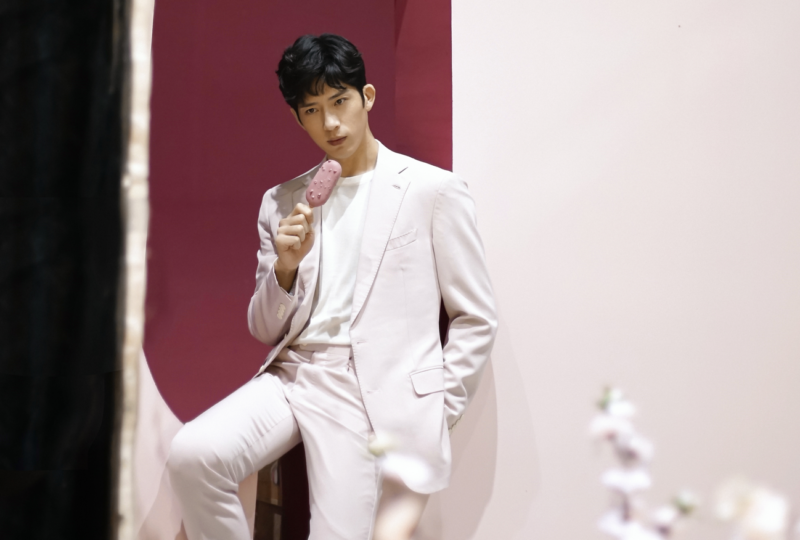
Unilever’s marketing strategy in China in a nutshell
- Unilever Group is a leading player in the global FMCG industry. Since its return on the Chinese market in 1986, the company made a long-term commitment to engage with local consumers and developed a sophisticated marketing strategy.
- Branding is key in Unilever’s marketing strategy in China. In order to enhance its reputation within the Chinese audience, the British-Dutch multinational corporation relies on multi-branding, product extension, and localization.
- E-commerce and social media play a major role in Unilever’s expansion in China. In addition, the Group decided to enter the DTC business.
- The scandal involving Magnum’s double standards in selecting the ingredients for its ice creams in China and in Europe bred a lot of discontent among Chinese consumers with the risk to damage Unilever’s marketing strategy in China. The British-Dutch Group will have to work hard to win back Chinese consumers’ trust.


